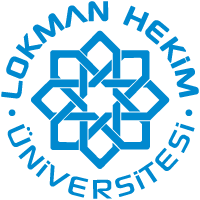| dc.contributor.author | Turk, C | |
| dc.contributor.author | Turk, S | |
| dc.contributor.author | Malkan, U Y | |
| dc.contributor.author | Haznedaroglu, Ibrahim Celalettin | |
| dc.date.accessioned | 2020-12-01T07:37:42Z | |
| dc.date.available | 2020-12-01T07:37:42Z | |
| dc.date.issued | 2020-08-24 | |
| dc.identifier.other | 32894568 | |
| dc.identifier.uri | http://hdl.handle.net/20.500.12591/346 | |
| dc.description.abstract | Objective: COVID-19 immune syndrome is a multi-systemic disorder induced by the COVID-19 infection. Pathobiological transitions and clinical stages of the COVID-19 syndrome following the attack of SARS-CoV-2 on the human body have not been fully explored. The aim of this review is to outline the three critical prominent phase regarding the clinicogenomics course of the COVID-19 immune syndrome.
Materials and methods: In the clinical setting, the COVID-19 process presents as "asymptomatic/pre-symptomatic phase", "respiratory phase with mild/moderate/severe symptoms" and "multi-systemic clinical syndrome with impaired/disproportionate and/or defective immunity". The corresponding three genomic phases include the "ACE2, ANPEP transcripts in the initial phase", "EGFR and IGF2R transcripts in the propagating phase" and the "immune system related critical gene involvements of the complicating phase".
Results: The separation of the phases is important since the genomic features of each phase are different from each other and these different mechanisms lead to distinct clinical multi-systemic features. Comprehensive genomic profiling with next generation sequencing may play an important role in defining and clarifying these three unique separate phases for COVID-19. From our point of view, it is important to understand these unique phases of the syndrome in order to approach a COVID-19 patient bedside.
Conclusions: This three-phase approach may be useful for future studies which will focus on the clinical management and development of the vaccines and/or specific drugs targeting the COVID-19 processes. ANPEP gene pathway may have a potential for the vaccine development. Regarding the specific disease treatments, MAS agonists, TXA127, Angiotensin (1-7) and soluble ACE2 could have therapeutic potential for the COVID-19 course. Moreover, future CRISPR technology can be utilized for the genomic editing and future management of the clinical course of the syndrome. | en_US |
| dc.language.iso | eng | en_US |
| dc.publisher | Tıp Fakültesi | en_US |
| dc.rights | info:eu-repo/semantics/openAccess | en_US |
| dc.rights | Attribution-NonCommercial-NoDerivs 3.0 United States | * |
| dc.rights.uri | http://creativecommons.org/licenses/by-nc-nd/3.0/us/ | * |
| dc.subject | Coronavirus | en_US |
| dc.subject | COVID-19 | en_US |
| dc.subject | SARS-CoV-2 | en_US |
| dc.title | Three critical clinicobiological phases of the human SARS-associated coronavirus infections. | en_US |
| dc.type | info:eu-repo/semantics/article | en_US |
| dc.contributor.department | Dahili Tıp Bilimleri | en_US |















